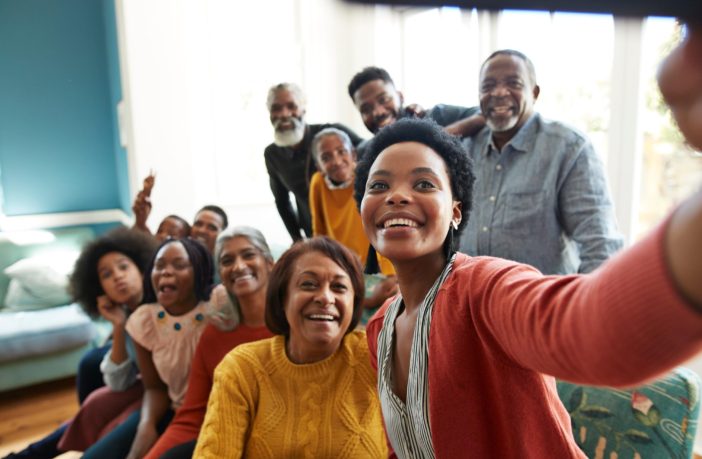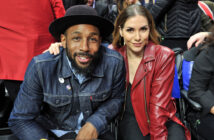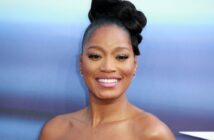According to casual conversations taking place in Blackworld (i.e. at barbershops, beauty salons, dinner tables, etc.), there is a growing divide between the generations in the Black community.
Some contend this is a new-ish phenomenon. These individuals argue that Black people from different generations, for decades and possibly centuries, had so many shared experiences and similar worldviews, that besides the typical generational differences experienced by people of all races, Blacks of all ages were basically on the same page.
However, no more. It seems that one of the few things Blacks of all ages do agree on is the fact that the differences between generations have grown tremendously.
Some areas of differing opinions include 1) the importance or lack thereof of voting, 2) allegiance to the Democratic Party, 3) participation in traditional organized religion, 4) employment patterns—i.e. commitment to an employer vs job/industry-hopping, 5) the dating rules of engagement, 6) understanding of new technologies, etc.
Grandparents looking at laptop with granddaughter in kitchen. Getty Images.
Several years ago, the Kinder Institute for Urban Research produced a series of articles on the generational differences among African Americans. The third article in the series sought to answer the question, “Why do more African-American Millennials than those in the earlier generations believe that Blacks have the same opportunities as whites?”
An excerpt from that July 4, 2018 article by Akin Bruce states:
Different generations of African-Americans grew up in worlds with measurably different opportunities, and their experiences may have had a lasting impact on their worldviews. The Silent Generation (born 1928-1945) endured the full effects of the Jim Crow laws. Baby Boomers (1946-1964) were the children of the Civil Rights Movement. Generation X (1965-1980) came of age during the Fair Housing Act and the Black Power Movement. Millennials (1981-2000) benefited greatly from these major successes, despite the continuing realities of racism and discrimination. Are there significant differences between African-American generations in their assessments of black opportunity in America? And if so, in what ways do their perceptions differ?
The findings from the Kinder Houston Area Survey in the years from 1989 to 2018 show that generation is, in fact, a significant predictor of the belief among African-Americans in the extent of equality of opportunity, even after controlling for differences in education, religion, political party, and income.
The Defender asked its readers to weigh in on the question, “Is there a generational divide in Black America.” And here’s what some of you said, both in conversation with us (the Defender) and with each other:
MOSES J. SPENCER
Yes, there is. Baby Boomers see/saw Trump as the greatest threat to America. I asked why and was told that he reminded them of what it was like pre-Civil Rights era when Anglo people were permitted to be openly racist and hostile towards Black people with impunity.
Baby Boomers (’46-’64) and the beta version of Millennials. Whatever you think about Millennials, Baby Boomers behaved this way first! Also, they are not the Civil Rights Generation. The Silent Generation is. Even the earliest Boomers were too young to have planned and/or led the Civil Rights Movement (1954 -1968).
The Silent Generation understood and knew how to succession plan, which is why Baby Boomers think they had any part in the CRM. This is the key flaw of the Baby Boomers – lack of succession planning.
Gen Xers are caught in the crosshairs of Millennials and Baby Boomers. Millennials seek to dismantle (somewhat, not completely) status quo and institutions that Baby Boomers cling to. Gen Xers are in the middle, who get the work done while finding common ground.
Xennials/Wagon Trail (’77-’83; ’84 and ’85 if their parents are Boomers who had kids late) is what I call the cusp generation that is often lumped into either Millennials or Gen X. This generation grew up in a childhood that was devoid of all this Millennial this/that talk. We are not digital natives, but have adapted very well. We are tired of institutional structures, but not vested in tearing them down completely (bonnets in public are still a no-go).
Millennials (’84-’95) believe the world starts/stops with them and lack historical knowledge and context. They are now leaders in the workforce. Their employment mentality is to get more for doing less. Self-centered and driven by opinions/perceptions of others. Yet, this generation has led America to value/respect work-life balance, mental health and inclusivity for all. They have championed gay marriage, criminal justice reform and attitudes about Black women’s natural hair in the professional space and beyond. Simply put, they’ve executed a “re-norming” of American values.
Gen Z (’95-’12) are hard workers who will not comprise self for the greater good or world/community at large. Digital natives who passively and actively redefined what privacy is. This generation will tear down/decimate status quo and institutions now and when all of the generation enters the workforce. Gamechangers. We don’t know who or what they’ll become. Just know that we may have little input in their decisions.
IMANI KAREGA
Baby, I was introduced to the civil (human) rights struggle at five years old, when my parents and Brooklyn C.O.R.E. fought the NYC (mis)education system to open up enrollment in public schools; and I’m STILL fighting! “The Silent (??) Generation (maybe you meant “The Greatest Generation?”) was my parent’s generation, and I’m 66 years old!!!
MOSES J. SPENCER
They’re called both; Silent and Greatest Generation. Participation to an extent, yes. That’s what I described as “succession planning.” The Silent/Greatest Generation didn’t take up all the roles/space to participate and/or lead, as Baby Boomers often do. They have a “pay your dues” philosophy, whereas the older generations either passed the reigns or specifically sought out younger people to involve in the movement they organized and planned.
An example of that is the Montgomery Improvement Association selecting a young, unknown Dr. Martin Luther King, Jr. to lead the Montgomery Bus Boycott. He’s not a Baby Boomer, but the example is there to show where previous generations sought to involve younger people. Gen Xers, Xennials, Millennials have been waiting for Baby Boomers to hand over the reins of power.
IMANI KAREGA
As with every new generation, there’s bound to be division; however, it is the degree that is important. As an elder, I was pretty much through with the young folk. As a group, they appeared, to me, to be rude, pathologically materialistic, lazy and downright ignorant. I mean, they were talking about the Earth being flat!!! I had an intern at the Free Clinic who told me that her responsibilities were “too much like work,” before she left for lunch and disappeared forever!!! But once the police started to be videotaped killing young Black people, things changed, A Lot!!! In just the last couple of years, I see young Black folks randomly teaching our Black history on Instagram and Facebook; showing up and out during elections; young celebrities building schools and providing college scholarships; buying land to build low-income housing in our communities; paying off school loans and paying old folks’ property taxes and utilities… Things have really changed, and it seems like it happened in the blink of an eye.
I know that I, and other elders who struggled for and didn’t give up on our people’s future, are finally at peace. Ours and our Ancestors’ work will not have been in vain. Thank God, we might not be headed backward into Jim Crow and slavery!!! Shoot, you think I wasn’t skeert for a minute?? I sure was, and I was not alone, either!!!
RONNIE C II
HUGE. The millennials were the first generation to look their elders in their eyes and say “You messed me up because you have unresolved trauma. Fix yourself.” That is a sign of a break. And with millennial and Gen X parents raising their children to be anti-authority and anti-hierarchy, being an elder in our community doesn’t have as much weight as it used to.
DR. MARLON SMITH
That is part of the reason I wrote “Black Lives Houston.”



